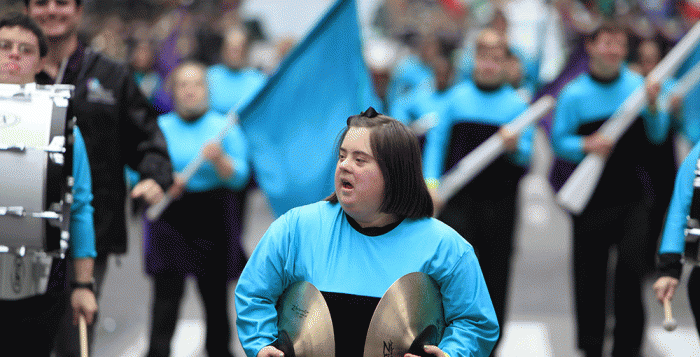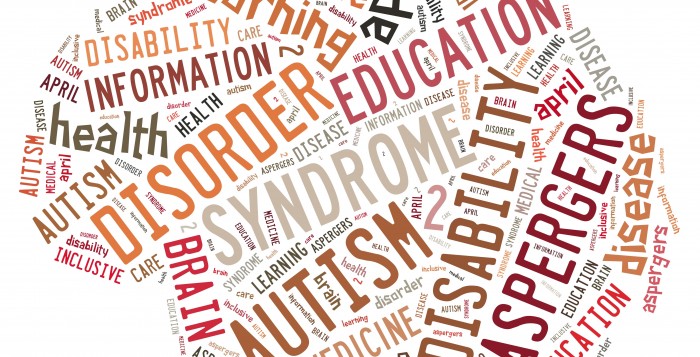Recently Senate Bill 1604, Transition to Independence, was introduced in Washington by Senator Grassley (R-IA), and co-sponsored by Senator Casey (D-PA). While it immediately raised red flags for vocational providers, after a careful read and review with ACCSES (one of our national partner associations), we do believe this legislation can be helpful – provided some modifications are made. The RCPA summary and response to the bill, which we were able to present recently to Senator Casey’s lead staff in DC, is available online. Review the actual bill here.
Governor Wolf Announces Next Steps in MLTSS
On July 22, the Departments of Human Services and Aging announced the next steps in Governor Wolf’s plan to improve care coordination and move to Medicaid Managed Long-Term Services and Supports (MLTSS). These updates are a result of overwhelming response to the public comment period and stakeholder input.
Along with feedback on how MLTSS should be implemented in the Commonwealth, the departments heard feedback on changes that can be made today to improve the current system. They will take the following steps:
Doubling the number of staff who work on Nursing Home Transition (NHT)
PDA and DHS recognize that current processes to move individuals who are able to be better served in the community from institutional settings are lengthy and complicated. To address this, the departments will:
- Increase the number of staff assigned to NHT from 5 to 10;
- Identify and implement strategies intended to
- improve the process
- enhance program outcomes
- advance the opportunities for individuals to either avoid premature placement and/or transition back into the community;
- Evaluate and redesign the entire NHT process; and
- Increase training for all current NHT staff and providers.
Creating an advisory committee with at least 50 percent representation by participants and caregivers and conducting monthly webinars
Throughout the MLTSS public input sessions, participants, advocates, and providers made it clear that more education, involvement, and communication are necessary as the Commonwealth moves to MLTSS. In order to accomplish this, the departments will:
- Host monthly webinars on the third Thursday of every month.
- Create an MLTSS Advisory Committee that will meet under the federally mandated purview of the Medical Assistance Advisory Committee (MAAC).
- MLTSS program participants will comprise half of the membership, with the remaining half representing provider communities
- Opportunities for participation via telephone for increased accessibility and convenience
- This committee will meet bi-weekly
- Encourage open communications; questions can be submitted via email.
Restructuring existing contracts to provide more choice for participants
Issue a procurement for a home modification quality improvement program in August 2015: In some cases, the transition from a nursing home to living in the community can be accomplished through a simple home modification such as the installation of a ramp for wheelchair access. The new procurement will streamline the current process to make this easier to complete these modifications, while at the same time ensuring that only high-quality contractors complete the work. The contracts will include two providers in each part of the state to provide choices in completing the work.
Issue a financial management services procurement in November 2015: There is currently one statewide vendor that acts on behalf of the consumer to make payroll, withhold and report taxes, and pay bills for individuals in home- and community-based waiver programs. Moving forward, multiple vendors will be awarded the contracts to ensure choice, and they will be required to maintain a regional presence throughout the state.
Award New Contracts for Independent Enrollment Broker (IEB) Services in November 2015: One of the most significant barriers to serving individuals in the community is the length of time it takes to enroll someone in home- and community-based services. The new contracts will be awarded in four regional lots and include new, strong performance standards, to ensure that the vendors are held accountable and participants are not stuck waiting for services.
IDD Update July 22, 2015
ODP Update
The Office of Developmental Programs has released the following information:
- Announcement #059-15: Certified Investigator Training Schedule for Fiscal Year 2015/16
Potential Directions for HealthChoices
On May 29, the Department of Human Services released a request for information (RFI) to help guide the department’s planning process for the release of a new procurement for the provision of managed care services for physical health. RCPA submitted comments and recommendations to the department in response to the RFI. Secretary Dallas has worked to be transparent during this process and has published a summary of some of the most frequently provided comments in the responses to the RFI. He has also identified some of the changes that the department is considering for the new HealthChoices physical health managed care procurement. This list is not intended to be final and merely reflects some of the ideas that are being considered at this time. Because many of the comments and related action plans communicated by Secretary Dallas address integrated physical and behavioral health care, data and information sharing, service system simplification, and other initiatives that have implications for RCPA members, this interim report is being shared at this time. Please submit any additional comments on the concepts included in this summary, or an area that is not listed in the document, via email by August 10.
BHSL Surveys CPSL Impact and Needs
The Bureau of Human Services Licensing (BHSL) has released a survey to assess licensed operators’ understanding of the changes that were recently made to the Child Protective Services Law (CPSL). BHSL will use this data to target areas where increased training and support are needed to assist facilities in maintaining regulatory compliance. This survey is optional and will take approximately 10 minutes to complete by the following programs and service providers:
- 55 Pa.Code Chapter 3800 residential treatment facilities and day treatment (not partial hospital)
- 55 Pa.Code Chapter 5310 host homes for children
- 55 Pa.Code Chapter 6400 community homes that serve children
- 55 Pa.Code Chapter 6500 family living homes that serve children
Information provided in this survey will not be used to issue regulatory violations and will be kept anonymous. RCPA encourages members to take the time to participate. The deadline for completion of the survey is August 14.
Consumer Guide to the Treatment of Concussion in Sports
The Pennsylvania Athletic Trainers’ Society, through a grant from the Pennsylvania Department of Health, brings you “A Consumer’s Guide to the Management and Care of Concussion in Sport.” This program gives a detailed look at the importance of proper identification and treatment of sport concussion, and the role of the licensed athletic trainer as part of the health care team to manage these injuries appropriately. The Safety in Youth Sports Act directs schools and athletic programs to create a health care team, and a concussion policy action plan, to aid in the management of concussions. This program will air on the Pennsylvania Cable Network (PCN) during the “Sunday Fusion” programming on the following dates and times:
- Sunday July 26, 3:30 pm
- Sunday August 2, 2:30 pm
- Sunday August 9, 5:30 pm
- Sunday August 16, 2:30 pm
- Sunday August 23, 4:00 pm
Beginning Monday, July 20 the program will be available on the PCN website.
IDD Update July 17, 2015
PSS Website
The Department of Human Services Provider Self-Service (PSS) website will be updated on August 1. This will include
Implementation of Comprehensive Care for Joint Replacement Model
On July 14, the Centers for Medicare and Medicaid Services (CMS) published a proposed rule in the Federal Register, announcing the implementation of a new Medicare Part A and B payment model called the Comprehensive Care for Joint Replacement (CCJR) model. Under this model, acute care hospitals in 75 selected geographic areas would receive retrospective bundled payments for episodes of care for lower extremity joint replacement or reattachment of a lower extremity. All related care within 90 days of hospital discharge from the joint replacement procedures will be included in the episode of care.
CMS anticipates the proposed CCJR model would benefit Medicare beneficiaries by improving the coordination and transition of care, improving the coordination of items and services paid through Medicare fee-for-service, encouraging more provider investment in infrastructure and redesigned care process for higher quality and more efficient service delivery, and incentivizing higher value care across the inpatient and post-acute care spectrum spanning the episode of care. According to CMS, hip and knee replacements are the most common inpatient surgery for Medicare beneficiaries and can require lengthy recovery and rehabilitation periods.
CMS proposes to test CCJR for a five year performance period, beginning January 1, 2016, and ending December 31, 2020. Comments will be accepted on the proposals contained in the proposed rule, as well as other alternatives or suggestions, through September 8. Contact Melissa Dehoff at RCPA with questions.
Q&A on Revisions to Child Protection Background Checks Law
IRF PAI Training Manual Updated in Preparation for October
The Centers for Medicare and Medicaid Services (CMS) has released an updated inpatient rehabilitation facility patient assessment instrument (IRF PAI) training manual that includes updated information on new items that become effective for IRF discharges occurring on or after October 1. These new items, including the arthritis attestation item and therapy information, were finalized in the IRF prospective payment system fiscal year 2015 final rule. The Updated IRF PAI Training Manual, Helpful Resources Document and Section 2 (Item by Item Coding Instructions) are located in the “Downloads” section of the IRF PAI web page. CMS has also made available a YouTube video slideshow from the January 2015 national provider call that focused on training providers how to code and complete these new items on the IRF PAI.
















